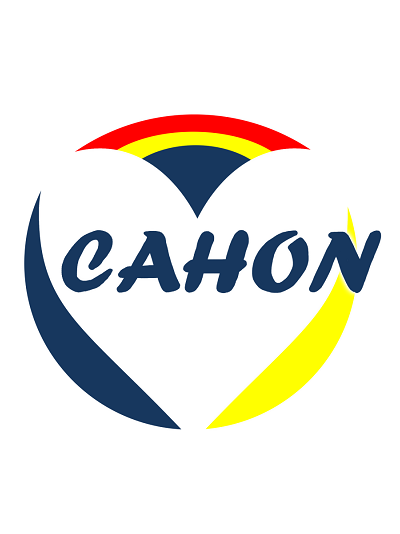Iparomlimab and tuvonralimab (QL1706) plus chemotherapy and bevacizumab for EGFR-mutant patients with advanced non-small cell lung cancer after failure of EGFR-tyrosine kinase inhibitors: updated results from cohort 5 in the DUBHE-L-201 study
IF 40.4
1区 医学
Q1 HEMATOLOGY
引用次数: 0
Abstract
Iparomlimab and tuvonralimab (QL1706), a bifunctional anti-programmed death-1/cytotoxic T-lymphocyte antigen-4 antibody, in combination with bevacizumab and doublet chemotherapy was tolerable and showed preliminary antitumor activity in advanced non-small cell lung cancer (NSCLC) in DUBHE-L-201 study. Here, we report the updated data of long-term survival prognosis and safety from cohort 5. Epidermal growth factor receptor (EGFR)-mutant patients who progressed on EGFR-tyrosine kinase inhibitors (TKIs) were enrolled in cohort 5 and received QL1706 (5 mg/kg) combined with bevacizumab, pemetrexed and carboplatin in a three-week cycle for up to four cycles followed by maintenance therapy of QL1706, bevacizumab and pemetrexed. Survival outcomes and adverse events were followed up. As of July 5, 2024, the median duration of response, progression-free survival (PFS), and overall survival (OS) in the 31 patients in cohort 5 was 11.33 months (95% confidence interval [CI]: 4.17–19.91), 8.51 months (95% CI: 5.72–13.31), and 26.51 months (95% CI: 12.81-not reached), respectively. In 23 (74.2%) patients who received subsequent anticancer therapy after disease progression, the median PFS was 10.02 months. The median PFS (8.51 months vs. 5.95 months, P = 0.622) and median OS (30.19 months vs. 10.68 months, P = 0.177) appeared longer in patients with 21L858R mutation compared to those with 19Del, although the differences were not statistically significant. Grade ≥ 3 treatment-related adverse events occurred in 13 (41.9%) patients. Nineteen (61.3%) patients had immune-related adverse events, of whom one (3.2%) were grade ≥ 3. No new safety signal was observed. QL1706 combining pemetrexed, carboplatin, and bevacizumab showed long-term favorable prognosis and manageable safety profile for advanced EGFR-mutant patients with NSCLC after failure of EGFR-TKIs.Iparomlimab和tuvonralimab (QL1706)联合化疗和贝伐单抗治疗egfr -酪氨酸激酶抑制剂治疗失败后晚期非小细胞肺癌患者:DUBHE-L-201研究中队列5的最新结果
在dubhel -201研究中,Iparomlimab和tuvonralimab (QL1706)是一种双功能抗程序性死亡-1/细胞毒性t淋巴细胞抗原-4抗体,联合贝伐单抗和双药化疗在晚期非小细胞肺癌(NSCLC)中是耐受的,并显示出初步的抗肿瘤活性。在这里,我们报告了队列5的长期生存预后和安全性的最新数据。使用EGFR-酪氨酸激酶抑制剂(TKIs)治疗进展的表皮生长因子受体(EGFR)突变患者被纳入队列5,在3周周期内接受QL1706 (5 mg/kg)联合贝伐单抗、培美曲塞和卡铂治疗,最长可达4个周期,随后接受QL1706、贝伐单抗和培美曲塞的维持治疗。随访生存结局和不良事件。截至2024年7月5日,队列5中31例患者的中位缓解时间、无进展生存期(PFS)和总生存期(OS)分别为11.33个月(95%可信区间[CI]: 4.17-19.91)、8.51个月(95% CI: 5.72-13.31)和26.51个月(95% CI: 12.81-未达到)。在疾病进展后接受后续抗癌治疗的23例(74.2%)患者中,中位PFS为10.02个月。21L858R突变患者的中位PFS(8.51个月比5.95个月,P = 0.622)和中位OS(30.19个月比10.68个月,P = 0.177)比19Del突变患者更长,但差异无统计学意义。13例(41.9%)患者发生≥3级治疗相关不良事件。19例(61.3%)患者出现免疫相关不良事件,其中1例(3.2%)≥3级。未观察到新的安全信号。QL1706联合培美曲塞、卡铂和贝伐单抗治疗EGFR-TKIs失败后的晚期egfr突变NSCLC患者显示出良好的长期预后和可管理的安全性。
本文章由计算机程序翻译,如有差异,请以英文原文为准。
求助全文
约1分钟内获得全文
求助全文
来源期刊
CiteScore
48.10
自引率
2.10%
发文量
169
审稿时长
6-12 weeks
期刊介绍:
The Journal of Hematology & Oncology, an open-access journal, publishes high-quality research covering all aspects of hematology and oncology, including reviews and research highlights on "hot topics" by leading experts.
Given the close relationship and rapid evolution of hematology and oncology, the journal aims to meet the demand for a dedicated platform for publishing discoveries from both fields. It serves as an international platform for sharing laboratory and clinical findings among laboratory scientists, physician scientists, hematologists, and oncologists in an open-access format. With a rapid turnaround time from submission to publication, the journal facilitates real-time sharing of knowledge and new successes.

 求助内容:
求助内容: 应助结果提醒方式:
应助结果提醒方式:


